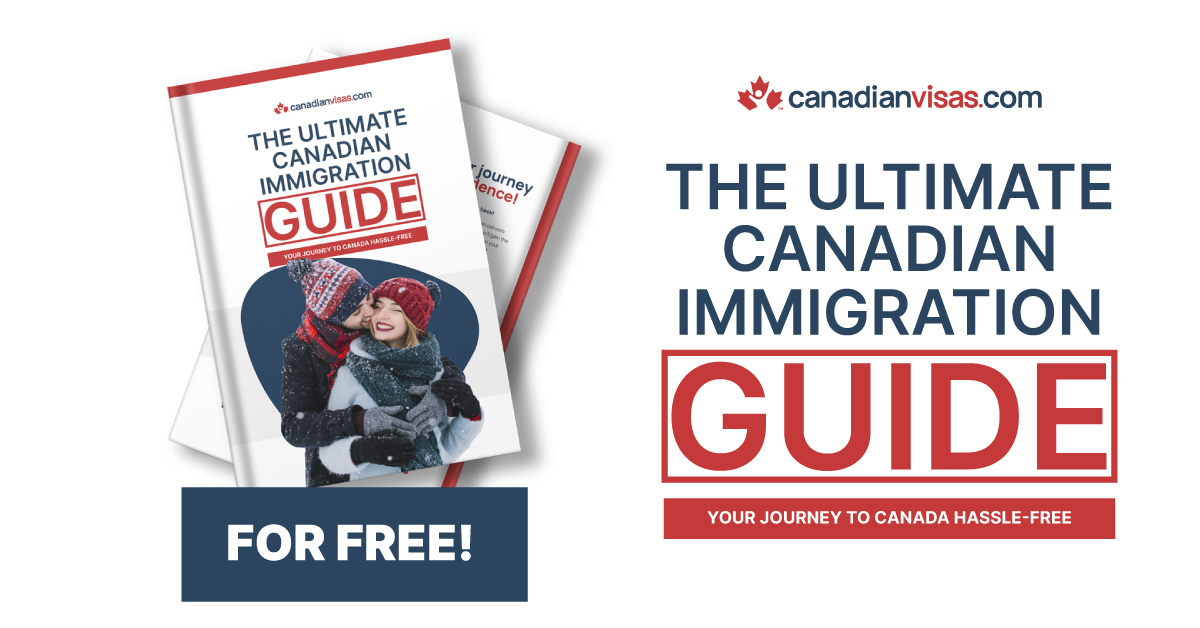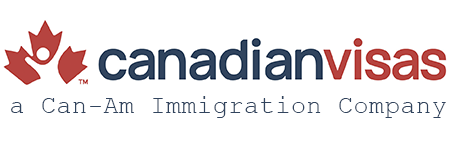
Apr 17, 2024 | Blog, Immigrate to Canada, Immigration, Immigration Reform, In the News, New Laws
Immigration, Refugees and Citizenship Canada (IRCC) has implemented a targeted update to the Innovation Stream pilot program. This update, announced on April 15th, aims to enhance Canada’s appeal to highly skilled foreign workers employed by designated Global Hypergrowth Project (GHP) companies.
Innovation Stream Pilot: A Faster Path for Qualified Talent
Established in 2021, the Innovation Stream serves as an expedited work permit application pathway for qualified foreign workers in high-demand fields. Offering significantly reduced processing times compared to traditional methods, the program has proven attractive to businesses seeking to attract top international talent.
Streamlined Process for GHP Employees
The recent update designates specific roles within GHP companies as “crucial for public policy” as outlined under subparagraph 205(c)(ii) of the Immigration and Refugee Protection Regulations (IRPR). This designation allows eligible foreign nationals working in these roles to obtain work permits for up to five years under the Innovation Stream. This streamlined approach reduces processing times and alleviates some of the administrative burdens typically associated with work permit applications.
High-demand fields under the Innovation Stream pilot
While the official IRCC press releases or website don’t explicitly list specific high-demand fields under the Innovation Stream pilot, the program itself focuses on attracting talent in innovative sectors that contribute to Canada’s economic growth and competitiveness.
Fields that likely align with the Innovation Stream’s goals:
- Technology: Artificial Intelligence, Machine Learning, Cybersecurity, Blockchain, Software Development
- Life Sciences: Biotechnology, Genomics, Medical Devices, Pharmaceuticals
- Clean Technology: Renewable Energy, Sustainable Infrastructure, Environmental Science
- Advanced Manufacturing: Robotics, Automation, 3D Printing, Advanced Materials
- Digital Media & Communications: Big Data Analytics, Interactive Design, Virtual Reality/Augmented Reality
Additionally, the Innovation Stream pilot specifically targets roles within designated Global Hypergrowth Project (GHP) companies. These companies are likely to be leaders in cutting-edge industries and require highly skilled workers across various innovation-driven fields.
It’s important to note that the IRCC may not provide an exhaustive list of high-demand fields. Instead, they assess applications based on the specific role, the company’s designation as a GHP, and its contribution to Canada’s economic and technological advancement.
Benefits for Businesses and Workers
For GHP companies, this update simplifies the process of acquiring and retaining vital foreign talent. Expedited work permit approvals enable them to fill critical positions swiftly, fostering innovation and contributing to overall growth. Skilled foreign workers benefit from a clear path to secure employment in Canada and build a successful career.
Looking Ahead
While this update signifies a positive step towards attracting and retaining global talent, further considerations may be required. Moving forward, IRCC may explore additional measures to streamline the immigration process for a broader range of high-demand sectors, fostering a more robust and competitive Canadian economy.

Apr 17, 2024 | Blog, Immigrate to Canada, Immigration, Immigration Reform, In the News, New Laws
The Canadian immigration landscape offers aspiring residents two main pathways: federal programs and provincial nomination programs (PNPs). While both lead to permanent residency (PR) status and the cherished right to live and work anywhere in Canada, the initial settlement intentions can differ. Let’s delve deeper into the implications of each approach.
Post-Immigration Mobility: Freedom to Roam
Canada prides itself on its inclusive character, and this extends to its immigration policy. The Canadian Charter of Rights and Freedoms guarantees PRs, regardless of their federal or provincial immigration route, the right to establish themselves in any province or territory. This means you can eventually relocate within Canada after obtaining PR status.
Provincial Programs: Building Roots in a Specific Locale
PNPs cater to the unique needs of individual provinces seeking to attract skilled immigrants who can contribute to their specific economic goals. In exchange for provincial sponsorship, nominees may be expected to demonstrate a genuine intention to reside in the nominating province. Provinces often set specific requirements within their PNP programs, so honesty throughout the application process is paramount. You must have a well-founded desire to settle in the chosen province and make a sincere effort to establish yourself there before moving elsewhere in Canada. Documenting these efforts, such as securing employment or enrolling in educational programs, is advisable, particularly if you plan to apply for Canadian citizenship later.
Federal Programs: Openness to Explore
Federal immigration applicants, on the other hand, are not beholden to any specific provincial settlement obligations. Upon receiving PR status through a federal program, you’re free to choose any province or territory in Canada as your new home. This flexibility can be ideal for individuals who haven’t yet decided on a specific location or who prioritize factors like job opportunities or proximity to family across different provinces.
Demonstrating Settlement Intent
Provinces often have guidelines outlining how to demonstrate your intention to reside in their jurisdiction. Using Ontario as an example, acceptable evidence might include proof of current or past employment, job offers or applications within the province, educational qualifications obtained in Ontario, or volunteer work undertaken there. Additionally, securing a lease agreement or acquiring property in Ontario, establishing professional networks within the province, or demonstrating family or social ties in the area can all strengthen your case.
Consequences of Misrepresentation
It’s crucial to be truthful throughout the immigration process. If your intention to settle in the nominating province wanes before landing in Canada, you may be reported for non-compliance. In more serious cases, where there’s clear evidence of intentional misrepresentation from the outset, it could lead to allegations of fraud and potentially jeopardize your PR status.
Seeking Expert Guidance
Whether you’re unsure about program requirements or have been nominated by a specific province, consider consulting with an authorized immigration lawyer. Their expertise can be invaluable in navigating the complexities of the immigration process and ensuring a smooth transition to your new Canadian home.

Apr 17, 2024 | Blog, Immigrate to Canada, Immigration, Immigration Reform, In the News, New Laws
The Quebec government announced the reopening of its Program for Refugees Abroad (Collective Sponsorship) on April 9, 2024. This program offers a unique opportunity for citizens and permanent residents of Quebec to directly contribute to Canada’s refugee resettlement efforts, while also providing a valuable pathway to permanent residency for sponsored refugees.
What is Collective Sponsorship?
Collective Sponsorship is a program unlike any other in Canada’s immigration system. It empowers small groups of 2 to 5 Quebec residents, either individuals or representatives from organizations, to join forces and sponsor a refugee and their family currently living outside of Canada. These sponsors act as guarantors, providing the refugees with financial and social support for the first 12 months after their arrival in Quebec. This crucial support system helps refugees integrate smoothly into Canadian society, access essential services, and find employment.
How to Apply and Key Dates
The application window for the Collective Sponsorship Program is open for a limited time, from May 7th to June 4th, 2024. Those interested in participating should act quickly to ensure they have ample time to assemble their application package. The Ministère de l’Immigration, de la Francisation et de l’Intégration (MIFI) has made the application forms readily available online, along with valuable resources and guides to assist groups in preparing a strong application.
General Ways to Immigrate to Quebec
The Collective Sponsorship Program offers a rewarding alternative to the traditional immigration process, but it’s important to remember it’s just one of several pathways to permanent residency in Quebec. Here’s a quick overview of other options for those considering immigrating to this dynamic Canadian province:
- The Quebec Skilled Worker Program: This program is designed to attract skilled workers with experience in professions that are in high demand within Quebec’s labor market.
- The Quebec Experience Program: This program is ideal for temporary foreign workers who have already gained valuable work experience in Quebec and are seeking to establish permanent roots in the province.
- Family Sponsorship: Canadian citizens and permanent residents can sponsor their close family members for permanent residency in Quebec, allowing them to reunite and build a life together in Canada.
The Impact of Collective Sponsorship
The Collective Sponsorship Program offers a unique win-win situation. Sponsors gain the rewarding experience of directly supporting a refugee family in building a new life in Canada, while refugees benefit from a dedicated support system that eases their transition and paves the way for successful integration.
What do you think?
The opportunity to make a tangible difference in the lives of refugees and contribute to the cultural mosaic of Quebec is a powerful one. Would you consider participating in a Collective Sponsorship Program? Share your thoughts and questions in the comments below! Have you ever participated in a similar program, or do you know someone who has? We’d love to hear your stories!
Looking to learn more?
Schedule a consultation with one of our immigration expert for detailed information on the Collective Sponsorship Program and other immigration pathways to Quebec. Explore the program requirements, eligibility criteria, and the application process to see if Collective Sponsorship is the right fit for you.

Apr 11, 2024 | Blog, Express Entry, Immigration, Permanent Residency, Why you need an immigration specialist
Recent Canada Express Entry draw
In the latest Express Entry draw held on April 11, 2024, Immigration, Refugees and Citizenship Canada (IRCC) issued 4,500 invitations to apply to eligible candidates.
This draw targeted STEM occupations, with a minimum Comprehensive Ranking System (CRS) score of 491. This is the first Express Entry draw targeting STEM occupations in 2024.
Earlier general draws in 2024 saw steadily decreasing CRS requirements. The first draw on January 10th had a minimum score of 546, while the March 25th draw only required 524 points. Unlike targeted draws, general draws consider applicants from all three Express Entry programs: Federal Skilled Workers (FSWP), Canadian Experience Class (CEC), and Federal Skilled Trades (FSTP). In these draws, a high CRS score is the strongest indicator of receiving an Invitation to Apply (ITA).
Express Entry: Canada holds an All-Program draw on April 10, 2024
Understanding Express Entry
Express Entry is an innovative application management system that oversees the Federal Skilled Worker Program, the Canadian Experience Class, and the Federal Skilled Trades Program. Candidates in the Express Entry pool are assessed based on various factors like work experience, language ability, education, and age. They are assigned a Comprehensive Ranking System score, and those with the highest scores are most likely to receive an ITA.
Benefits of Express Entry
Moreover, Express Entry has revolutionized how Canada selects its immigrants, prioritizing those who bring valuable skills and experience to the country. With unparalleled efficiency, this program processes applications at lightning speed, providing applicants with the opportunity to settle in Canada quickly and effectively.
Eligibility and Requirements
To succeed in Express Entry, meeting certain requirements is paramount. Your work experience, education, language proficiency, and other factors will determine your score in the Comprehensive Ranking System (CRS). Keep your documents in order and strive to reach the minimum required score to receive an invitation.
Tips to Increase Your Chances
Want to enhance your chances of receiving an ITA in future draws? Here are some tips to boost your Express Entry profile:
- Improve Language Skills: Dedicate time to enhancing your language proficiency in English or French. Higher language scores can significantly improve your CRS score.
- Job Offer Advantage: Having a valid job offer from a Canadian employer can increase your CRS score and chances of receiving an ITA.
- Maximize Education: Pursue higher education to gain additional points in the CRS system and stand out in future draws.
- Stay Informed: Stay updated with the latest Express Entry draws and changes to the selection criteria.
- Professional Guidance: Furthermore seek assistance from experienced immigration consultants to navigate the Express Entry process smoothly and optimize your profile.
How can we help you?
When you receive an ITA (Invitation to Apply), a new series of steps begins for you to obtain your permanent residency in Canada.
Get in touch with us as soon as possible to get access to our Post-ITA (post invitation to apply) services.
Do you want to do it yourself? Find out more about how to get an ITA and what to do next – Quick Guide.
Our expert immigration consultants are here to guide you through the Express Entry process and ensure a seamless and successful journey to permanent residency in Canada! You can speak with one of our consultants by clicking the button below.

Apr 10, 2024 | Blog, Immigrate to Canada, Immigration, Immigration Reform, In the News, New Laws
Employers seeking to hire foreign workers through Canada’s Labour Market Impact Assessment (LMIA) program will see a mixed bag of changes in processing times announced by Employment and Social Development Canada (ESDC) on April 5, 2024.
While the processing times for the in-demand Global Talent Stream remain steady at 7 business days, some streams have seen increases, potentially impacting hiring timelines.
Streamlining Some Streams, Delays in Others
The update brings some positive news for employers utilizing the High-wage Stream, which saw a decrease of 3 business days, bringing the processing time down to 51 business days. This could benefit companies seeking to attract highly skilled foreign workers in fields facing talent shortages.
However, the Permanent Residence Stream and the Low-wage Stream experienced delays. The Permanent Residence Stream processing time increased by 6 days to 79 business days, potentially impacting employers hoping to sponsor foreign workers for permanent residency. The Low-wage Stream also saw a slight increase of 1 business day, reaching 55 business days.
The Agricultural Stream and the Seasonal Agricultural Worker Program also saw a one-day increase, bringing their processing times to 13 and 7 business days respectively.
Current average LMIA processing times
Global Talent Stream – 7 business days
Agricultural stream – 13 business days (+1 day)
Seasonal Agricultural Worker Program – 7 business days (+1 day)
Permanent residence Stream – 79 business days (+6 days)
High-wage Stream – 51 business days (-3 days)
Low-wage Stream – 55 business days (+1 day)
Understanding the Impact
These changes reflect the ongoing demand for foreign workers across various sectors in Canada. The continued fast processing for the Global Talent Stream highlights the government’s focus on attracting highly skilled individuals to fill critical labour gaps.
However, the delays in other streams could pose challenges for some employers. Businesses heavily reliant on temporary foreign workers, particularly in lower-wage sectors or those seeking permanent residency sponsorship for their employees, may need to adjust their hiring timelines or explore alternative recruitment strategies.
It’s important for employers to stay informed about these updates and work closely with immigration consultants to navigate the LMIA process effectively.

https://bit.ly/TheUltimateCanadianImmigrationGuide

Apr 10, 2024 | Blog, Immigrate to Canada, Immigration, Immigration Reform, In the News, New Laws
Canada’s immigration system, which prioritizes selecting skilled immigrants, is having a positive impact on the overall educational attainment of the country. Statistics Canada reports that immigration is a key factor behind a rise in the number of residents with bachelor’s degrees, with racialized women leading the surge.
Educated Arrivals: A Boon for the Economy
Canada’s point-based Express Entry system awards points for factors like education and work experience. This system successfully attracts skilled immigrants who are more likely to integrate into the workforce quickly. A study by the Canadian Centre for Policy Alternatives found that immigrants with Canadian work experience contribute significantly to the economy through their skills and knowledge.
The influx of educated immigrants is particularly beneficial for certain sectors. A report by the Conference Board of Canada highlights that immigrants fill crucial skill gaps in science, technology, engineering, and mathematics (STEM) fields. This not only benefits the national economy but also fosters innovation across various industries.
Racialized Women: Leading the Charge
The data shows a remarkable trend among racialized women. Statistics Canada reports that in 2021, 48.4% of racialized women between the ages of 25 and 64 held a bachelor’s degree or higher. This surpasses the rate for racialized men (46.5%) and the national average (32.9%).
There are a few possible explanations for this trend. Racialized women may be coming from countries with strong educational systems that emphasize female education. Additionally, they may be driven by a desire to overcome potential barriers in the job market.
Challenges Remain
While Canada’s immigration strategy is fostering a more educated population, there are still challenges to address. Many newcomers face difficulties getting their foreign credentials recognized. This can prevent them from working in their chosen fields and lead to underemployment.
Another challenge is ensuring language proficiency, particularly French in Quebec. Language training programs are essential to help newcomers reach their full potential in the Canadian workforce.
Overall, Canada’s immigration strategy is proving successful in raising educational attainment levels across the country. Addressing the challenges faced by newcomers, particularly with credential recognition and language training, will further enhance the positive impacts of immigration on Canada’s economy and society.








 Useful Resources for Canada
Useful Resources for Canada
 Useful Resources for U.S.
Useful Resources for U.S.
 Our Local Immigration Services
Our Local Immigration Services